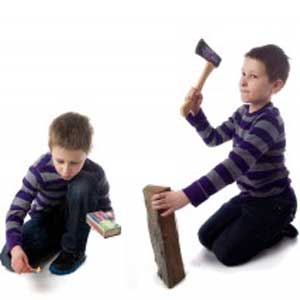“People tend to think that couples go through intense marital conflict before they decide to divorce,” said Hyun Sik Kim. “My original prediction was that children of divorce would experience negative impacts even before formal divorce processes began. But, study finds that this is not the case.”
Instead, Kim finds that children begin experiencing developmental problems after their parents commence the divorce process, and these issues continue to plague them even after the divorce is finalized. Interestingly, these problems neither worsen nor improve following the divorce.
Relying on nationally representative data from the Early Childhood Longitudinal Study-Kindergarten Class 1998 to 1999, the study traces the development of 3,585 kids from the time they entered kindergarten in the fall of 1998 through fifth grade, and compares children of divorce with kids from intact families.
These factors may include stress that children experience as result of seeing their parents blaming each other for the divorce or arguing about custody; an unstable living situation in which children are shuttled between parents or forced to move to another region with a parent who receives primary or sole custody, thus disrupting the children’s social network; economic hardship due to a sudden drop in family income; and residual effects of a parent’s divorce related depression, Kim said.
While the study finds that divorce has adverse effects on children’s math test scores, interpersonal social skills, and internalizing problem behaviors, in general, children of divorce don’t experience negative impacts on their reading scores or “externalizing problem behaviors,” which indicates how often they do such things as argue, fight, or get angry.

















Related Items
Co-education blues, chatting charades and the great panic attacks
Social media for eight-year-olds? ‘Yes’, says digital entrepreneur…
Why controlling American Social Media Platforms is necessary?